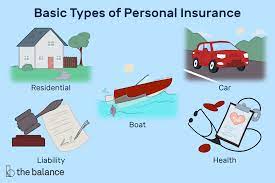Health insurance in China has undergone significant changes and improvements in recent years, reflecting the country’s commitment to expanding healthcare coverage and improving the overall health of its citizens. There are two primary types of health insurance in China:
Basic Medical Insurance (BMI):
Urban Employee Basic Medical Insurance (UEBMI): This scheme covers urban employees, including those working for state-owned enterprises and private companies. Both employers and employees contribute to this insurance fund.

Urban Resident Basic Medical Insurance (URBMI): URBMI is designed for urban residents who are not eligible for UEBMI. It covers individuals such as children, students, the unemployed, and the elderly.
Rural Cooperative Medical Scheme (RCMS): This program is specifically for rural residents and is intended to provide financial protection for rural families against high medical expenses.
Key features of health insurance in China:
Coverage: These insurance programs cover a wide range of medical services, including hospitalization, outpatient care, surgeries, and essential medications.

Funding: Contributions for UEBMI and URBMI are typically made by both employers and employees, with the government providing subsidies for certain groups. RCMS is funded by a combination of individual contributions, government subsidies, and collective funds in rural areas.
Portability: In most cases, individuals can transfer their health insurance coverage when they move within China, ensuring continuity of coverage.
Reimbursement: Patients can usually seek care at any hospital or clinic within the designated network and are reimbursed for a portion of their medical expenses. The reimbursement rates vary depending on the type of treatment and the insurance plan.
Government Subsidies: The Chinese government has been increasing subsidies to expand coverage and reduce the financial burden on individuals and families, especially for essential medical services.

Public vs. Private Facilities: Insurance can typically be used at both public and private healthcare facilities, but reimbursement rates may differ.
Expatriates: Expatriates living and working in China are generally required to have international health insurance plans or access to private healthcare facilities, as the public health insurance schemes are typically for Chinese citizens and residents.
It’s important to note that the specifics of health insurance in China can vary from one region to another, as local governments have some flexibility in implementing and managing these programs. Additionally, the healthcare system in China has been evolving rapidly, with ongoing reforms aimed at improving accessibility and the quality of care.
As of my last knowledge update in September 2021, these were the key features of health insurance in China. However, I recommend checking with local authorities or healthcare providers for the most up- to-date information and any recent changes in health insurance policies and regulations in China.
The process for applying for health insurance in China can vary depending on your specific circumstances, such as whether you are an urban employee, urban resident, or a rural resident. Here are some general steps you can follow:
For Urban Employees (UEBMI):
Employer Enrollment: In most cases, your employer will handle your enrollment in the Urban Employee Basic Medical Insurance (UEBMI) program. They will deduct your contributions from your salary and facilitate the enrollment process.
Provide Required Documents: You may need to provide identification documents and other required paperwork to your employer for enrollment purposes. This can include your national ID card, passport, and other relevant documents.
Contribution: You and your employer will make contributions to the UEBMI fund based on a percentage of your salary.
Receive Insurance Card: Once enrolled, you will typically receive an insurance card that you can use when seeking medical services at designated healthcare facilities.
For Urban Residents (URBMI):
Contact Local Authorities: Urban Resident Basic Medical Insurance (URBMI) enrollment is often managed by local authorities. Contact your local government or social insurance bureau to inquire about the application process.
Provide Documentation: You will likely need to provide identification documents, proof of residence, and other required paperwork. The specific documents required may vary by region.
Payment: You will be required to make contributions to the URBMI fund, with the government providing subsidies to certain groups.

Receive Insurance Card: After enrollment, you should receive an insurance card that you can use when seeking medical care.
For Rural Residents (RCMS):
Register with Local Authorities: Rural Cooperative Medical Scheme (RCMS) enrollment is typically managed at the local level, often by village or township authorities. Contact your local government or village committee for information on how to enroll.
Provide Required Information: You will need to provide information about your household, family members, and financial situation to determine your contribution amount.
Payment: Contributions for RCMS are made by individual households, and government subsidies may also be provided.
Receive Proof of Enrollment: Once enrolled, you may receive a certificate or document confirming your participation in the RCMS.
Access Healthcare Services: You can use your RCMS coverage to access healthcare services at designated facilities in rural areas.
It’s important to keep in mind that the application process and requirements may vary by region in China, so it’s advisable to contact local government offices or social insurance bureaus for the most accurate and up-to-date information on how to apply for health insurance in your specific location. Additionally, language barriers may be a consideration for expatriates or non-Chinese speakers, so seeking assistance from a local friend or translator may be helpful.

